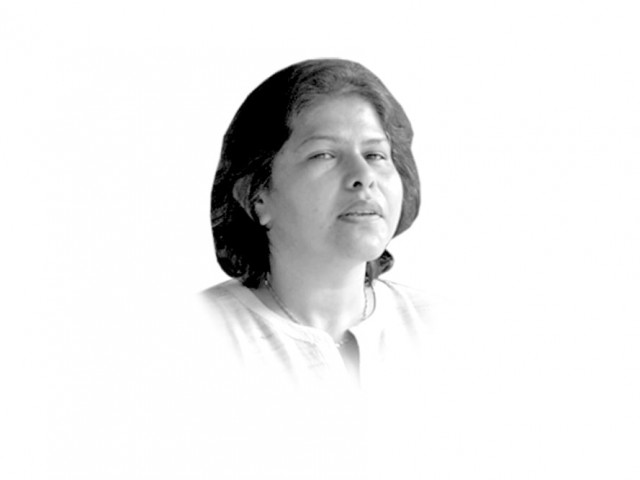Tomorrow is another day?
End of Iftikhar Chaudhry’s tenure must not mean end of justice. People should be heard even if it means less publicity

The writer is an independent social scientist and author of Military Inc.
For someone or anyone, who admires the chief justice for all his suo-motu actions, there will be real concern now for his wellbeing. One would be anxious to know how he will survive without the kind of non-stop media attention he received for over five years. But more than that, one feels concern for the ordinary Pakistani who had begun to view the highest courts as a place where he could find an alternative when there was none to be found elsewhere. If we go through one case after the other, it would be easy to notice how judgments cited the history of Islam and made reference to caliphs without making a serious effort to use precedence, which is important in common law, or creating legal precedence.
Resultantly, two kinds of impacts were created. There are people who began to look at the superior Court as a source for crippling a government and displacing it in the name of judicial activism. Government bureaucracy, for whatever it is worth, had begun to shirk from taking any action lest it be pulled up forever by the highest Court. I am reminded of this conversation from the drama in August this year, when a man named Sikandar had held Islamabad hostage for a few hours. Some of the police officials who were questioned on the sidelines about their lack of action said that their biggest concern was being pulled up under some suo-motu action by the Supreme Court had they decided to shoot the man. There are hundreds of other instances where the bureaucracy collapsed under the fear of being summoned and humiliated in the Court. But the other side if the story is that there were people whose expectation was raised in terms of the superior Court being a place where they would be heard when everything else fails. In fact, the key issue with judicial populism of the past five years is that while the sitting government may be excited to see the back of Iftikhar Chaudhry, there will always be those who will feel nervous about the prospects of his retirement being an end of an era of alternatives for the ordinary people. He probably didn’t deliver much justice but he helped flag an issue to a point where people would get an opportunity to then renegotiate with the state and government. So, the chief justice might not be the only person seriously depressed by losing limelight. There will be many others who would now be wondering if the new chief justice or the Court will be interested in flagging their cases.
Thus, Iftikhar Chaudhry’s period is a reminder of what happens in societies that lack systems and structures. What will happen now if the government continues to behave abnormally towards ordinary folk? Will there be someone interested to listen and intervene? Sadly, the five years of hyper-judicial activism did not necessarily result in creating institutional frameworks. It did make people aware of, for example, the issue if missing people in Balochistan. However, the judicial intervention does not seem to have put any pressure on the government to create a system that would result in putting an end to such cases.
Despite judicial activism of the last five years, the Court did not create institutions within its own jurisdiction. I am reminded of the famous case of a pro-judiciary movement lawyer who was accused of having beaten his young maidservant to death in 2010 but was not forced through any system of accountability. This was one case in which the accused had forced people from the legal community not to represent the family of this young Christian girl.
What has happened through all these years is a lot of populist-activism without creation of institutions. What the new chief justice ought to do is to create institutions, especially within the legal system and judiciary. The past five years did not see internal strengthening of the judiciary and the judicial system at large. When family members of senior members of the judiciary get involved in court proceedings, people do tend to get nervous. The corruption in the lower court system is not a secret. The senior judges must know that people also crib that nepotism also seems to have penetrated the highest judicial institutions. If family members of the legal fraternity are seen as playing a role and not kept in check, then there is a problem that must be seriously addressed. This is certainly a problem that requires strengthening of structural solutions. Then there is a situation where terrorists tend to get away because of lack of evidence or problems due to the way the judiciary handles such cases. One would expect the judiciary and a proactive chief justice to play a role in finding a method via the media to solve the problem. However, the highest judiciary in the past five years was weak on this front.
If things must improve in this country we need serious institution-building. As mentioned earlier, the former chief justice’s spectacular five years brought a lot of limelight without bringing any institutional solutions to people’s problems. As a state and society, we need more institutions not less. For the new chief justice, the biggest challenge is not to make ordinary folk feel abandoned. The end of Iftikhar Chaudhry’s tenure must not mean an end of justice. People should be heard even if it means less publicity.
Published in The Express Tribune, December 12th, 2013.
Like Opinion & Editorial on Facebook, follow @ETOpEd on Twitter to receive all updates on all our daily pieces.
















COMMENTS
Comments are moderated and generally will be posted if they are on-topic and not abusive.
For more information, please see our Comments FAQ